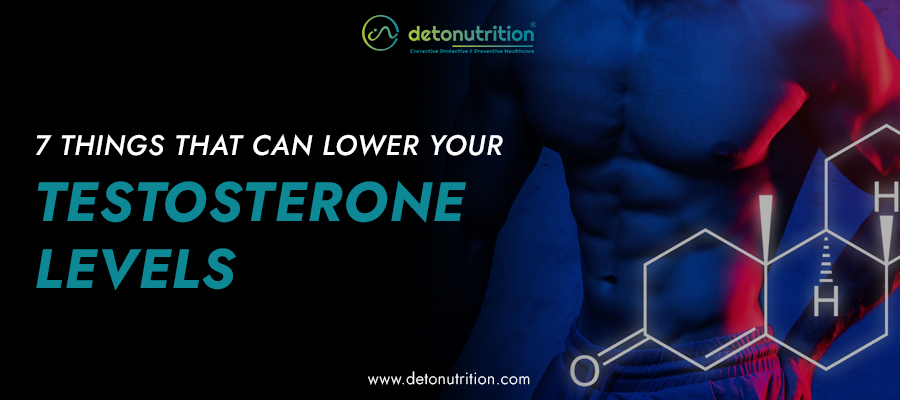Testosterone is a crucial hormone for maintaining optimal health in both men and women. While it is widely known for its correlation to male libido, it also impacts numerous aspects of daily life like mood, physical fitness, and cognitive abilities. Consistently low testosterone levels can lead to a myriad of health issues, including fatigue, depression, weakened muscles and bones, and a decrease in overall well-being. It’s vital to take measures to ensure your testosterone levels are stable. Here are seven factors that can contribute to a decline this essential testosterone hormone in males.
- Lack of Sleep: Deprivation of sleep can directly affect your testosterone levels. During sleep, the body’s hormonal production increases significantly. Research has shown that those who consistently get less than 6 hours of uninterrupted sleep are at an increased risk of decreased testosterone levels. It is recommended to take at least 7 hours of sleep per night for better testosterone production.
- Overweight/Obesity: Carrying excess weight can have a major impact on your testosterone production. Excess fat cells produce an enzyme called aromatase – this enzyme converts testosterone into estrogen, leading to lower testosterone levels. Maintaining a healthy weight through regular exercise and a balanced diet is key in preserving optimal hormonal balance.
- Chronic Stress: Long-term exposure to stressors inhibits the body’s ability to produce adequate amounts of testosterone. Cortisol – the stress hormone – rises during times of stress and signals the body to halt testosterone production temporarily. Making time for relaxation, meditation, self-care and taking natural testosterone supplements will improve your cortisol-testosterone balance.
- Alcohol Consumption: Studies have proven that excessive alcohol consumption can disrupt the function of Leydig cells responsible for producing testosterone in men’s testes or women’s ovaries—curbing alcohol consumption within the recommended guidelines will help preserve healthy hormone levels.
- Vitamin D Deficiency: Vitamin D plays a critical role in creating and maintaining optimal hormonal levels in our bodies, including the synthesis of testosterone. Ensuring you get enough sunshine and incorporating vitamin D-rich foods and testosterone booster supplements that have vitamin D in their capsules into your diet can help keep your testosterone production on track.
- Exposure to Endocrine Disruptors: Chemical compounds such as Bisphenol-A (BPA) and phthalates found in various household products can act as endocrine disruptors, negatively altering hormonal balance. To limit exposure, avoid using plastic containers for cooking or storage, opt for fragrance-free personal care products, and opt for fresh fruits and vegetables over canned goods.
- Sedentary Lifestyle: Physical activity is vital to ensure healthy testosterone levels. Regular exercise like resistance training can stimulate the production of hormones responsible for muscle growth and maintenance, including testosterone. Aim to incorporate both aerobic activities and strength training in your fitness routine for the best results.
Conclusion:
Optimizing your testosterone levels is crucial for overall well-being, strength, mental health, and vitality. Avoiding the detrimental factors listed above and adopting a healthy lifestyle and taking the best supplements to boost testosterone will support your body’s natural hormone regulation and lead to a more fulfilling life.





